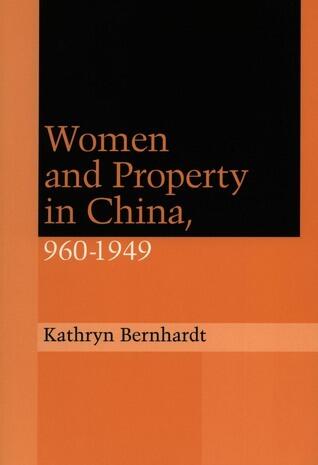
Women and Property in China, 960-1949
Pas encore d'évaluations
Format
Broché
Pages
252
Langue
Anglais
Publié
Jan 2, 2002
Éditeur
Stanford University Press
ISBN-10
0804735271
ISBN-13
9780804735278
Description
In a comprehensive exploration of the dynamics surrounding women and property in China from 960 to 1949, Kathryn Bernhardt challenges existing narratives that often depict a rigid framework of inheritance. She delves into the intricacies of societal norms, legal statutes, and cultural attitudes that influenced women's roles in property ownership and inheritance throughout these centuries.
Through meticulous research, Bernhardt unveils the evolving nature of property rights, highlighting both the constraints and opportunities women faced. She examines case studies that illustrate how women navigated these systems, asserting their agency in a predominantly patriarchal society. This analysis not only uncovers the historical complexities but also reflects broader themes of gender and power relations.
This work serves as a vital contribution to the understanding of women's socio-economic position in historical China. It opens a dialogue about the changing status of women and their interactions with the structures of property ownership, shedding light on a crucial yet often overlooked aspect of Chinese history. Bernhardt's insights encourage readers to reconsider the implications of property in shaping gender dynamics across centuries.
Through meticulous research, Bernhardt unveils the evolving nature of property rights, highlighting both the constraints and opportunities women faced. She examines case studies that illustrate how women navigated these systems, asserting their agency in a predominantly patriarchal society. This analysis not only uncovers the historical complexities but also reflects broader themes of gender and power relations.
This work serves as a vital contribution to the understanding of women's socio-economic position in historical China. It opens a dialogue about the changing status of women and their interactions with the structures of property ownership, shedding light on a crucial yet often overlooked aspect of Chinese history. Bernhardt's insights encourage readers to reconsider the implications of property in shaping gender dynamics across centuries.
Avis
Aucun avis pour le moment
Soyez le premier à donner votre avis sur ce livre et partagez vos pensées
Ajouter le premier avisJournal de lecture
Aucun journal de lecture trouvé
Commencez à suivre vos progrès de lecture pour voir les journaux ici
Ajoutez votre premier journal de lectureNotes
Journal des transactions
Aucun journal de transactions trouvé
Commencez à suivre vos transactions de livres pour voir les journaux ici
Ajoutez votre premier journal de transactions